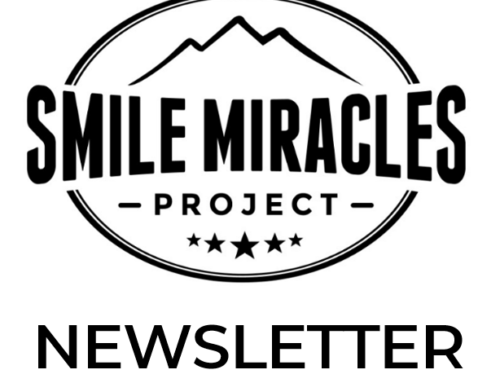How to Control Inflammation and Maximize Your Immune Function
By Dr. Lon Peckham
More and more, health care providers are understanding and accepting that all diseases have multiple “causes” and are usually linked to others. In no case is this truer than with dental disease. It has often been said that “the mouth is the window to the body” and the reasons for this are abundant. For instance, if you have periodontal disease, you are….
- 170% more likely to get Heart Disease
- 250% more likely to have a Stroke
- 300% more likely to get Diabetes
- 500% more likely to get Respiratory Disease
- 200% more likely to get Osteoporosis
- 700% more likely to have a Low Birth Weight baby
Conversely, your risk of getting periodontal disease is….
- 2 times greater if you suffer from excessive Stress
- 5 times greater if you are a Smoker
- 3 times greater if you are Diabetic
- 20 times greater if you are a Smoker with Diabetes
All of these conditions are linked around the failure of the body’s defense and repair system, the immune system, to operate effectively. But the tragedy of it is that they are all preventable!!! We know the cure. But for reasons which are beyond the scope of this little paper (power politics, corporate greed, ignorance, and laziness), we have failed to let the public know! The simple unavoidable truth is that our life style is killing us.
In this report I am going to briefly explain the connection between dental and systemic disease, how oral health affects general health, and simple affordable steps you can take to keep your teeth as well as the rest of your body, including your heart and kidneys, healthy for the rest of your life.
What Is Disease?
Disease can be defined as occurring whenever the body’s immune defense systems are unable to keep up with the waste and/or destruction that occurs from both its normal internal functions as well as any external insults and trauma it may encounter. This condition is usually recognized as heat, redness, swelling, or pain, and is commonly referred to as inflammation. At the molecular level, this process is called uncontrolled oxidation.
Normal day-to-day oxidation is controlled by the opposite process anti-oxidation. And the system that is responsible for the manufacture, collection, and delivery of antioxidants is called the immune system.
We now understand that it is an inflammatory failure of the immune system that is at the root of most of the major disease that modern man suffers from – including heart disease, diabetes, allergies, chronic fatigue, arthritis, and dementia, as well as dental periodontal disease and caries (tooth decay).
How Can Disease Be Prevented?
So if you want to prevent or reverse disease, you need to make sure your body has the strength and resources it needs to deliver enough antioxidants to counteract all the oxidation that is taking place in your body. Of course, doing whatever you can to limit the oxidative load on your body is equally important. Since I am a dentist, let’s take a look at a dental example.
Periodontal Disease
Like so many medical terms, “periodontal” is a Latin based word. “Peri” refers to “around” or “surrounding”, and “dontal” refers to “teeth”. So when we talk about periodontal disease we are referring to a disease of the tissues (bone and gums) that surround the teeth, as opposed to the teeth themselves. Basically it is a bacterial infection that starts in the gums and, if left unchecked, spreads to the jaw bone which it eats away until there is no longer enough left to hold the teeth in place. At this point they become loose and often painfully abscessed with no alternative left but extraction and expensive replacement. Today it is the number one cause of tooth loss, with over 95% of adults having some level of infection and 10% to nearly 20% in danger of actually loosing teeth!
How Do You Get It?
Like any other infection, you get periodontal disease when bacterial oxidants are produced faster than your body can deliver antioxidants. And as you can imagine, this will occur faster in some people than in others. Diabetes, HIV/AIDS, and other conditions, such as tobacco use, which suppress the disease fighting immune system, are known to speed the process up. Hereditary can also be a factor, as can poor nutrition, stress, medications, and an unbalanced dental bite.
However, this is not to say that for some people controlling periodontal disease is impossible. It just means some will be able to get away with being less consistent than others. We’ll get to what you need to be consistent about in just a minute.
What Does It Do?
If left unchecked, these bacteria set up housekeeping on the gums and start depositing oxidants which, as we discussed earlier, lead to inflammation. The area around this battle zone will turn red and start to swell. It will often bleed easily if touched (like when brushing or flossing), and will usually start to stink (a common cause of bad breath).
Dental plaque is a pasty yellowish-white mass of these bacteria that accumulates on teeth if not effectively removed. Filled with millions of worm-like germs, it grows like mold on bread, and in time will actually turn orange or even green. As this continues, minerals in the saliva absorb onto the plaque which makes it harden like cement. At this point the only way to remove it is to have it scraped and blasted off.
As this battle continues to rage, collateral damage begins to occur. Bone around the teeth is destroyed, and the bacteria with their toxic oxidants enter the blood stream and spread the inflammation to the rest of the body where other medical conditions are either caused or worsened.
I won’t bore you with all the technical details about how this collateral damage occurs. But it is extremely important to understand that this is not a rare or uncommon problem. In fact, because of what has recently been documented about this process, smart medical insurance companies are now paying for dental treatments because it is no longer possible to isolate medical and dental issues from each other. Dental disease is medical disease. If you want to prevent heart problems, you must prevent gum problems. If you want to prevent or control diabetes, you must prevent or control periodontal disease. And the same is true for a host of other issues including stroke, cancer, osteoporosis, and Alzheimer’s.
What Can You Do About It?
The only predictable way to control periodontal disease is to fight it from both the inside as well as the outside.
Fighting From The Outside
The first “outside” step is to get your teeth, including any involved root surfaces, thoroughly cleaned and disinfected. As I alluded to earlier, this may involve some “scraping and blasting”, but it’s got to be done. Any tender areas can certainly be numbed up so a person doesn’t have to worry about any pain.
At this same time it is often a good idea to disinfect the area with a gentle laser. Properly used, dental lasers will kill any remaining bacteria and help the tissues heal much faster.
This will also be the time when your dentist or hygienist helps you fine tune your home-care. Aside from regular tooth brushing and flossing, they may recommend a “water pick” or a mechanical toothbrush too. Brushing with baking soda is often also a
good idea. Used properly, these can really help keep those bacteria off your gums and out of your blood stream.
THE INSIDE STORY – Strengthening your immune system
Equally or perhaps even more important than bacteria removal is internal damage or oxidation control. By fighting periodontal disease from the inside as well as the outside, not only will you greatly enhance your dental health, but at the same time you will make tremendous improvements in your general health. This is because inflammation in one part of your body tends to contribute to inflammation in other parts, either by spreading or by tying up resources. And what causes inflammation in one part of the body will also be likely to cause inflammation elsewhere as well.
Even inherited weaknesses can usually be managed and controlled with good preventive health care. In other words, just because periodontal disease runs in your family, doesn’t means you can’t avoid it yourself. The same is true of heart disease, diabetes, and most all of our “common” ailments.
Good health is dependent on four major “needs”. These physical needs make up what I call the Cross of Health.

Let’s examine these needs one at a time.
Nutrition
 In the largest and most thorough study of nutrition ever done, Dr. T. Colin Campbell discovered that all of the modern diseases we suffer and die from can be prevented with a proper diet. People who eat “right” rarely get –
In the largest and most thorough study of nutrition ever done, Dr. T. Colin Campbell discovered that all of the modern diseases we suffer and die from can be prevented with a proper diet. People who eat “right” rarely get –
- Cancer
- Heart disease Diabetes
- Arthritis
- Alzheimer’s
- Stroke
- Osteoporosis
– to name just a few, and they also rarely loose their teeth. Not only is this “miracle” diet great for your health, but it is extremely environmentally friendly and economical as well. It is high in fiber and low in sugar with just a trace of fat. You can eat all you want, and even get to splurge once in a while. On this diet your body automatically adjusts to its optimal weight with no starving or calorie counting. You look good, you feel good, and you live a long time. According to this landmark study, the perfect diet consists of 95%-100% whole plant foods. Unrefined and unprocessed fruits, vegetables, nuts, grains, and roots. Apples, oranges, melons, berries, salad, tomatoes, broccoli, beans, walnuts, filberts (hazelnuts to you easterners), whole wheat, brown rice, mushrooms, onions, and carrots. The only rule is that you need to really load up with the bulk of your diet being vegetables and fruit while being sure you get a wide variety of all the plant types. 95% seams to be just as good as 100%, which means that once a week you can splurge with some refined or animal based food. Ice cream, eggs, milk, steak, fish – whatever you want.
Why is this diet so perfect? Because it is loaded with antioxidants! Vitamins, minerals, and enzymes are just some examples of the different types of antioxidants supplied with this “nutritarian” diet. The more we study, the more different kinds and types we discover, which is one reason why you can’t depend on supplements to provide you with an adequate supply. We just don’t know it all. Big surprise, huh!
One of the most common misunderstandings about food revolves around our need for protein. So let’s take a quick look at that. Your body makes protein by assembling chains of amino acids. Of the many amino acids needed, you can make all but eight. These eight must be in your diet and are called essential amino acids. You can get them second-hand by eating other animals who have collected them in their diet, or get them first-hand by eating what they eat.
All of the essential amino acids you need can be obtained from any combination of grain and bean (legume); for
instance rice and black beans, corn and peas, or wheat and soy beans. The big advantage of getting your protein from plants is that it is high in antioxidants, high in fiber, low in calories (if your grains are hydrated or fresh), and cholesterol free.
Just as refined sugar is “empty calories”, animal protein is “empty protein”. Animals use antioxidants for their own health, so their meat is just as barren of essential antioxidants as white bread is; not completely empty of course, but comparatively pretty darn near! (Animal means any living thing that is not a plant – fish, birds, crustaceans, cephalopods, and mammals.)
The truth of the matter is that you were not designed to eat animal protein. All of the major diseases that are killing us today are absolutely and irrefutably caused by the way we eat! In a nut shell, if you don’t want to die of heart disease, diabetes, or cancer, if you don’t want to get fat, osteoporosis, or Alzheimer’s, if you don’t want your teeth to fall or rot out, your diet needs to be 95-100% whole plant based. All your body needs and wants is good healthy carbohydrates. These foods are packed with all of the essential vitamins and minerals, fiber, antioxidants, glyconutrients, and protein that are needed for healthy cellular function and repair.
Water
Finally, no discussion of diet and nutrition would be complete without at least a brief mention of the importance of good clean water, and lots of it! Your body is over 70% water. Your brain is even more. Dehydration leads to decreased energy, decreased metabolism, and decreased resistance to disease. You need water!
How much water do you need? One half of your body weight (in lbs.) equals the number of ounces of water you need each day. An average glass holds 8 oz. Thus a 200-lb. man would need 100 oz. or 12 glasses of water each day. This would increase significantly if he were also drinking caffeine, alcohol, fruit juice, soda pop, or sports drinks, all of which are or contain dehydrators, taking water out of your system.
Exercise
 We all know the benefits of regular exercise – improved muscle tone, increased endurance, accelerated fat burning. Few of us, though, know how to exercise properly. Proper exercise maximizes the flow of oxygen through your body, burns excess fat and increases strength. What most of us don’t realize is that you can exercise too much! Too much exercise burns very little fat and retards strength gains. Proper exercise has two main characteristics.
We all know the benefits of regular exercise – improved muscle tone, increased endurance, accelerated fat burning. Few of us, though, know how to exercise properly. Proper exercise maximizes the flow of oxygen through your body, burns excess fat and increases strength. What most of us don’t realize is that you can exercise too much! Too much exercise burns very little fat and retards strength gains. Proper exercise has two main characteristics.
1) Keep your heart rate within the maximum fat-burning range (MFBR). If you exceed your MFBR your body will switch from fat burning to protein, or muscle burning. Not what you want! So what is your MFBR? Here’s how to figure it out.
Your MFBR is 60-75% of your Maximum Heart Rate (MHR). You MHR is 220 minus your age. For instance, let’s say you are 40 years old. Your MHR would be 180 (220 – 40 = 180). Thus your MFBR would be from 108 to 135 (180 x .60 = 108, 180 x .75 = 135). For the most efficient results you should wear a heart rate monitor.
Do this at least 3 times per week for at least 30 minutes each time. Increase the frequency and duration for faster results.
2) To increase muscle mass, do not weight train any muscle group more than once per week. It is a proven fact that it takes 5-7 days for muscles to recover after being fatigued. Working out too soon can lead to injury, over training (increased fat!), or lack of progress.
Safety
A safe and healthy environment is obviously crucial to health and well being. In this category are included adequate shelter, freedom from physical harm, and a lack of pollution. While not completely under our own individual control, we should all be doing what we can to help each other with these issues. However, there are some things that you can do to improve the health and safety of your own environment.
Fresh air
Oxygen is vital to the operation of your biologic engine. Just as using a turbo charger to inject more oxygen into a puny little 4 cylinder engine can make it run like a big throaty V8, so will turbo charging your body maximize your energy output.
So how do we get more fresh air? Throw open your windows and get outside. Sit up straight and stand up tall. Give your lungs plenty of room to work, and breath from your stomach. At the bottom of your chest cavity is a big drum like membrane called the diaphragm. Its purpose is to pull air into your lungs. When it pulls down, air is pulled into your lungs and your stomach is pushed out of the way. Don’t worry about your chest. As your lungs fill up, they will push your ribs out of the way automatically. Just push your stomach out and pull that oxygen in all the way to the very bottom. Make a habit of breathing like this all the time. This turbo charging will give you 1) more physical energy, 2) more mental energy (your brain uses over 25% of your bodies oxygen), 3) more emotional energy (less depression), and 4) more fat burning. You can’t burn fat without oxygen.
Smoking
Do you smoke? It goes without saying; you’re not going to get much fresh air if your lungs are full of smoke! Smoking is also one of the most effective ways to suppress you immune system, preventing the delivery of those all essential antioxidants. If you are a smoker, there is nothing better you can do for your body, for your teeth, or for your family than to quit! I’m not going to spend a lot of time belaboring this point because everyone knows it’s true. Suffice it to say that the sooner you get this done the better.
Sunlight
Sunlight is a natural purifier, the best source of Vitamin D, and a powerful mood enhancer. Give yourself a triple treat of oxygen, exercise, and sunlight, by exercising out of doors. Even 5 – 10 minutes of direct sunlight a day will make a great difference. But remember, of course, not to let yourself burn!
Hygiene
The other thing that you obviously can do to control the health and safety of your environment is to practice good hygiene. Keep yourself clean. If you don’t smell good, you’re not clean! And of course this includes brushing and flossing.
I also recommend that you use a water-pick. We briefly covered this back in the discussion about fighting periodontal disease from the outside. But it fits here as well. When used properly, a water-pick will clean down deep around your teeth below the gum line where even floss can’t get.
The proper way to use a water-pick is to turn the pressure on your machine up as high as it will go, and then hold the tip of the water-pick in between your teeth on the cheek side right at the edge of the gums so that it is pointing from the outside (cheek side) straight across the gums to the inside (tongue side). Once you have the tip properly positioned, turn the machine on. Hold the tip there for 10 seconds, and then move it to the next contact. Continue around your whole mouth until you have squirted the water in between all you teeth. Do this over a sink so you can let the water drain out of your mouth.
If you are missing some teeth, just do in between the ones that are actually touching others. And do not squirt the water directly at or under the gums. This will only push the plaque down to the bottom the crevice where it will cause the very gum inflammation you are trying to avoid! Done properly, this will create a suction (a venturi effect for you mechanics) that will actually pull the plaque up and out of those deep pockets where gum infection likes to hide.
Love
 In his book “Love and Survival”, Dr. Dean Ornish chronicles how he discovered that, more important than diet, more important than exercise, more important than temperance, more important than any other life style habit, is the presence of genuine loving relationships in your life.
In his book “Love and Survival”, Dr. Dean Ornish chronicles how he discovered that, more important than diet, more important than exercise, more important than temperance, more important than any other life style habit, is the presence of genuine loving relationships in your life.
When you stop and think about it, it makes perfect sense. 90% of all stress has to do with interpersonal relationships (the other 10% usually has to do with money!). And we all know that stress kills, but “a happy heart is better than medicine”. The question is, are we looking in the right spot for happiness, or are we “looking in all the wrong places”. We all have the same basic needs – the need to belong, to be free, to have fun, and to have a meaningful purpose for living. In one way or another, these needs all require people. In other words, we need people to love us. And we need people to love. When these needs are met, then we are truly happy.
If you are feeling stressed, it is probably because one or more of your needs are not being adequately met. You can begin to remedy this situation by doing the following.
1. Take time every day to reflect. Were your needs well met today? How did today’s events and interactions leave you feeling? Are your expectations realistic? What can you do tomorrow to make things better?
2. Learn to listen well. The object of good listening is to learn and empathize with the other person’s perspective and feelings. Not to judge. Not to fix. Just to understand.
3. Find someone who will listen well to you and allow you to share your feelings.
4. Every day, with a smile, give something to someone with no expectation of any kind of reciprocation.
“I believe that the purest example of unselfish love is found in the life of Jesus Christ, and have found that regularly reflecting on His life and ministry has made the above steps much easier to accomplish. “
IN CLOSING
I hope this brief introduction to healthful living has been informative and helpful. If you have any questions, please do not hesitate to contact us at:
THE SMILE MIRACLES PROJECT
50 Main Street Suite 201
Priest River, Idaho 83856
855-55DRLON (855.553.7566)





Leave A Comment
You must be logged in to post a comment.